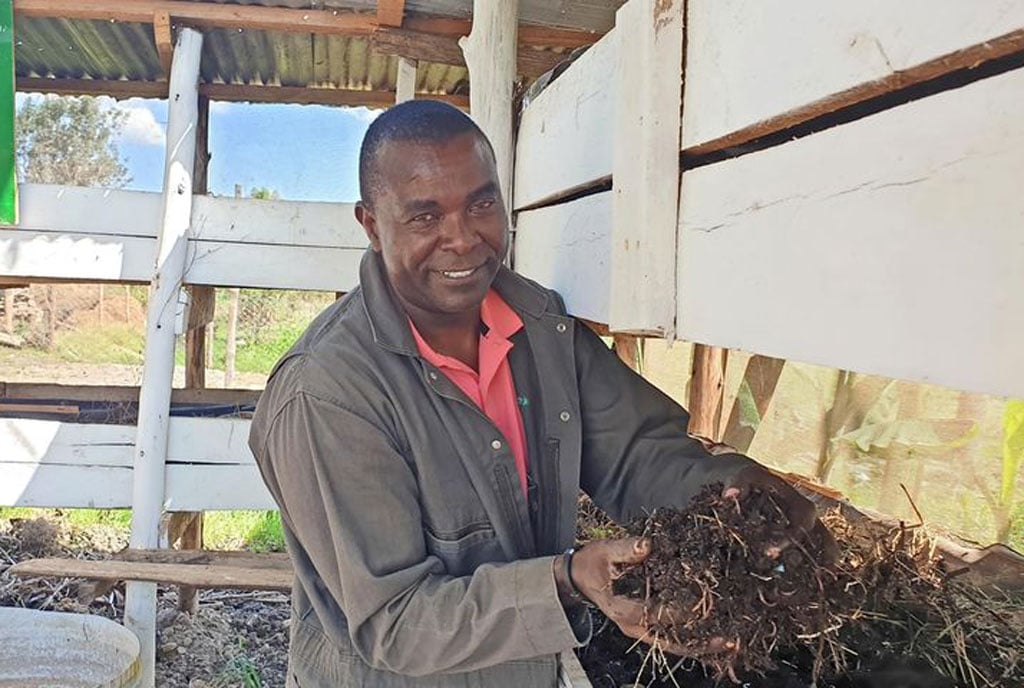
Mr Edward Mukiibi, an agronomist and executive director of Slow Food Uganda. PHOTO/RACHEAL NABISUBI
|Prosper
Prime
How organic farming will fix climate change concerns
What you need to know:
- A 2021 survey by Twaweza’s Sauti za Wananchi shows that half of Uganda’s households (48 percent) ran out of food at some point in the previous month, a similar number were hungry but did not eat (46 percent) and more than one out of three (37 percent) went for a whole day without eating. Prosper Magazine’s Racheal Nabisubi had a chat with Edward Mukiibi, an agronomist and executive director of Slow Food Uganda on what can be done to address food insecurity.
How one can earn from agroecology?
It goes beyond the monetary value. The conventional system has created an illusion which is delusional to create a specific figure of how farmers can earn from their land using conventional seeds.
Many times farmers do not get these results. When you are buying a conventional maize seed, they show you the output per hectare which farmers do not actually achieve because it is an illusion to convince farmers to take up this.
But in agroecology we talk about facts, running a system that is based on so many crops and resources that you can harvest throughout the year even during the dry season.
From the farmer’s experience, there is no time in the year that we have ever lacked something to harvest
This is what farmers need in the tropics. We do not need to put too much trust in a system that is built on a fragile environment where you can easily lose 100 percent of your maize if you put all the land under maize.
We want to put trust in a system that even if there is climate change or drought, you cannot lose 100 percent which is only through agroecology or use of natural environmentally friendly practices.
How does the agroecology system work?
The agroecology system is based on preservation of local biodiversity, indigenous seeds and works with local knowledge. It also works with a lot of options when it comes to nutritious and diverse diets for households.
On a farm that is diverse where you have a lot of edible insects, many fruits grown together with commercial crops such as coffee and vanilla, you find the nutritional diet and income security of the household strengthened.
In terms of nutrition, agroecology provides an unlimited number of nutritious healthy and edible plants. It also does not put a big threat on people’s health and wellbeing. Even if a product is nutritionally scoring high in terms of nutrients but also with high levels of toxicity with chemicals; that food is not good for human consumption. This means agroecology provides both nutrition and safety.
How does it ensure food security?
When it comes to food security, in the tropics; it is difficult to have food security when you put all your eggs in one basket. Here, I mean putting all your land under one crop. With the extreme weather patterns in form of heavy rains and drought in some parts of the country, climatic hazards are becoming common.
This means a farmer who utilises all their land under one crop with unpredictable climatic conditions threatens food security to that household. But diversifying your farm in an agroecological way of growing crops under tall trees would prevent heavy rains from destroying your small crops. For instance, beans can survive so well in heavy storms if they are grown under coffee or other fruit trees which are purely agro ecological. You will also not need several chemicals because the environment takes care of some of the problems.
With diversification and food security; climate resilience is ensured.
With the current climatic changes, what needs to be done to avert the drought?
In a time like now when we are struggling with climate change, it is important that farmers intercrop and diversify farms to preserve water in the soil. It is also important to preserve more compost and organic matter because it (organic matter) acts as a sponge that stores water in the system of the soil where we find most of the roots. This is how agroecology is helping us as farmers adapt to climate change and recreate resilient farms that can ensure food security even in difficult times.
In your view, is the government doing enough to support agro ecological practices?
The government of Uganda is supporting such initiatives in many different ways such as the passing of the organic culture policy alone is a very big support from the government side to have a legal and policy framework for ecological agriculture.
In addition, initiatives like the drafting of the agro ecology strategy for Uganda, we have seen the president also coming up many times to sensitize people about the dangers of agro chemicals and also asking the government to regulate and control the spread of agro chemicals. Also this greatly depends on farmers’ demand, awareness and knowledge.
We have seen districts are engaged in seminars and training of extension workers in agroecology working with the civil society because they also realize the importance of working in a system that will resist climate change and at the same time put food on the table and plate of people and in the market for people to earn money and other people to access food.
There is government support but it is still needed in many different ways such as through strengthening policy and legal framework, having a specific policy to promote and amplify agroecology and also to extend a bigger proportion of the budget towards agro farming techniques and supporting small holder farmers who are practicing agroecology and inscribing agroecology in the Parish Development Model (PDM).
This is because agroecology is farming for the future that will help address the current food security issues. We need to put it as part of the PDM.
Agroecology should be part of the National Development Plan (NDP). Many times the government is having a lot of conflicting programs because sometimes its considered as part of investment and promoting investment but in the end it causes us a lot of problems so the government need s to do away with programs that are destroying the environment but also putting food security of the people at risk.




